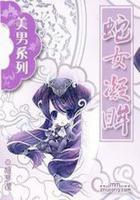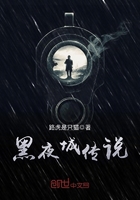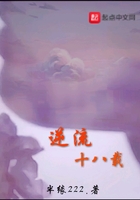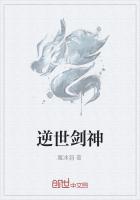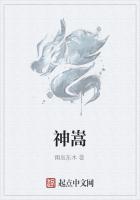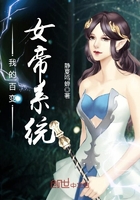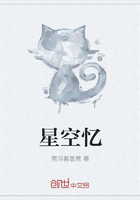'What is it?' he asked, and she answered that the knight who owned the castle was dead, and they were bearing his body to the church. Never had Owen beheld such vast crowds, and following the dead knight was the most beautiful lady in the world, whose cry was louder than the shout of the men, or the braying of the trumpets. And Owen looked on her and loved her.
'Who is she?' he asked the damsel. 'That is my mistress, the countess of the fountain, and the wife of him whom thou didst slay yesterday.'
'Verily,' said Owen, 'she is the woman that I love best.'
'She shall also love thee not a little,' said the maiden.
Then she left Owen, and after a while went into the chamber of her mistress, and spoke to her, but the countess answered her nothing.
'What aileth thee, mistress?' inquired the maiden.
'Why hast thou kept far from me in my grief, Luned?' answered the countess, and in her turn the damsel asked:
'Is it well for thee to mourn so bitterly for the dead, or for anything that is gone from thee?'
'There is no man in the world equal to him,' replied the countess, her cheeks growing red with anger. 'I would fain banish thee for such words.'
'Be not angry, lady,' said Luned, 'but listen to my counsel. Thou knowest well that alone thou canst not preserve thy lands, therefore seek some one to help thee.'
'And how can I do that?' asked the countess.
'I will tell thee,' answered Luned. 'Unless thou canst defend the fountain all will be lost, and none can defend the fountain except a knight of Arthur's court. There will I go to seek him, and woe betide me if I return without a warrior that can guard the fountain, as well as he who kept it before.'
'Go then,' said the countess, 'and make proof of that which thou hast promised.'
So Luned set out, riding on a white palfrey, on pretence of journeying to King Arthur's court, but instead of doing that she hid herself for as many days as it would have taken her to go and come, and then she left her hiding-place, and went into the countess.
'What news from the court?' asked her mistress, when she had given Luned a warm greeting.
'The best of news,' answered the maiden, 'for I have gained the object of my mission. When wilt thou that I present to thee the knight who has returned with me?'
'To-morrow at midday,' said the countess, 'and I will cause all the people in the town to come together.'
Therefore the next day at noon Owen put on his coat of mail, and over it he wore a splendid mantle, while on his feet were leather shoes fastened with clasps of gold. And he followed Luned to the chamber of her mistress.
Right glad was the countess to see them, but she looked closely at Owen and said:
'Luned, this knight has scarcely the air of a traveller.'
'What harm is there in that, lady?' answered Luned.
'I am persuaded,' said the countess, 'that this man and no other chased the soul from the body of my lord.'
'Had he not been stronger than thy lord,' replied the damsel, 'he could not have taken his life, and for that, and for all things that are past, there is no remedy.'
'Leave me, both of you,' said the countess, 'and I will take counsel.'
Then they went out.
The next morning the countess summoned her subjects to meet in the courtyard of the castle, and told them that now that her husband was dead there was none to defend her lands.
'So choose you which it shall be,' she said. 'Either let one of you take me for a wife, or give me your consent to take a new lord for myself, that my lands be not without a master.'
At her words the chief men of the city withdrew into one corner and took counsel together, and after a while the leader came forward and said that they had decided that it was best, for the peace and safety of all, that she should choose a husband for herself. Thereupon Owen was summoned to her presence, and he accepted with joy the hand that she offered him, and they were married forthwith, and the men of the earldom did him homage.
From that day Owen defended the fountain as the earl before him had done, and every knight that came by was overthrown by him, and his ransom divided among his barons. In this way three years passed, and no man in the world was more beloved than Owen.
Now at the end of the three years it happened that Gwalchmai the knight was with Arthur, and he perceived the king to be very sad.
'My lord, has anything befallen thee?' he asked.
'Oh, Gwalchmai, I am grieved concerning Owen, whom I have lost these three years, and if a fourth year passes without him I can live no longer. And sure am I that the tale told by Kynon the son of Clydno caused me to lose him. I will go myself with the men of my household to avenge him if he is dead, to free him if he is in prison, to bring him back if he is alive.'
Then Arthur and three thousand men of his household set out in quest of Owen, and took Kynon for their guide. When Arthur reached the castle, the youths were shooting in the same place, and the same yellow man was standing by, and as soon as he beheld Arthur he greeted him and invited him in, and they entered together. So vast was the castle that the king's three thousand men were of no more account than if they had been twenty.
At sunrise Arthur departed thence, with Kynon for his guide, and reached the black man first, and afterwards the top of the wooded hill, with the fountain and the bowl and the tree.
'My lord,' said Kai, 'let me throw the water on the slab, and receive the first adventure that may befall.'
'Thou mayest do so,' answered Arthur, and Kai threw the water.
Immediately all happened as before; the thunder and the shower of hail which killed many of Arthur's men; the song of the birds and the appearance of the black knight. And Kai met him and fought him, and was overthrown by him. Then the knight rode away, and Arthur and his men encamped where they stood.
In the morning Kai again asked leave to meet the knight and to try to overcome him, which Arthur granted. But once more he was unhorsed, and the black knight's lance broke his helmet and pierced the skin even to the bone, and humbled in spirit he returned to the camp.







